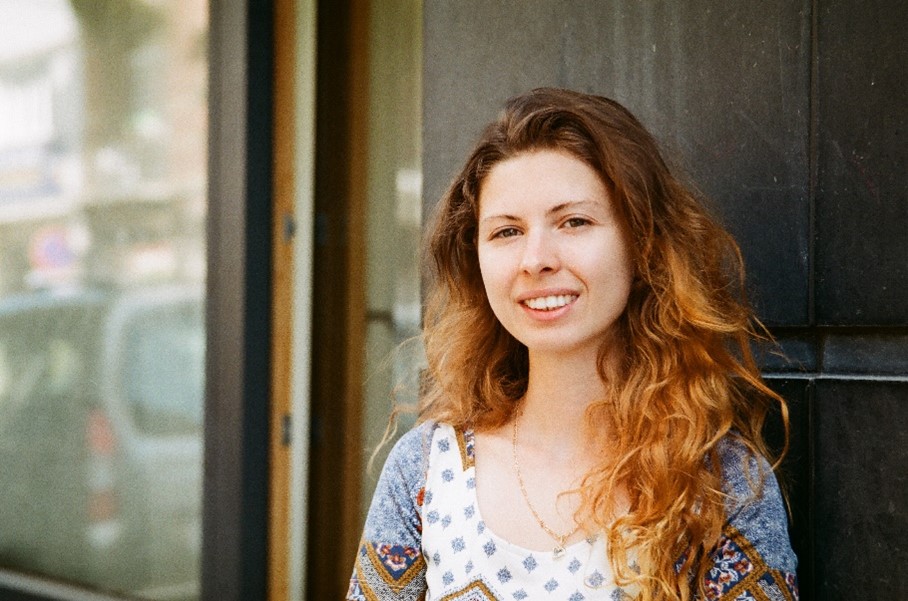
Magdolna Molnár
After earning her Bachelor's degree from Durham University in England, Magdolna Molnár undertook an internship at the European Commission in Brussels. During this time, she contributed to various international communication campaigns and supported the preparation of 2019 European elections. Following this experience, she completed a Master of Arts in Comparative European Studies, specializing in Political Science and Eastern European Relations, at the University of Regensburg in Germany, in a scholarship programme of the German Academic Exchange Service (DAAD).
Since 2022, she has been doing her doctorate on the topic of policy instruments to promote the lifespan extension of electrical appliances, funded by the German Federal Environmental Foundation (DBU), at the Chair of Sociology of Technology and the Environment at BTU Cottbus-Senftenberg. Beside her research activities, she has been assisting the development of the "Environmental Technologies Worldwide" project at the Deutsche Gesellschaft für Internationale Zusammenarbeit GmbH. In this role, she provides support for international projects focused on resource efficiency and circular economy initiatives.
Current research
In her dissertation project, Magdolna Molnár analyses the impact of policy instruments (e.g. repair voucher programme) on users of electrical and electronic equipment and on companies operating in the electronics repair and remanufacturing sector. In her work, she explores possible orientations of future policy guidelines on resource efficiency, with a particular interest in the following research areas:
- The role of policy instruments in guiding the transition from linear consumption and business practices to circular practices, such as caring
- Sustainability transition in the electrical and electronics sector
- Transformation innovation policy
- Circular economy
Publications
Molnár, M. and Jaeger-Erben, M. (2025), "Supporting consumer engagement in electronics repair: effects of financial incentives and voucher schemes"
https://doi.org/10.1108/JRPC-09-2024-0049E. Poppe, T.M., Aigner, K., Meyer, M., Molnár: (2024), Erweiterte ökologische Wirkungsabschätzung zum Reparaturbonus Thüringen. Ergebnisbericht. Berlin: Fraunhofer IZM.
https://www.izm.fraunhofer.de/de/abteilungen/environmental_reliabilityengineering/projekte/rebo-4-0.htmlK. Meyer und M. Molnár (13.2.2024): A comprehensive overview of the current repair incentive systems: repair funds and vouchers.
- N. J. A. Buchoud, A. Charlambous, G. Hartmann, K. Karampourniotis, H. Kuhle, & M. Molnár (Hrsg.), Intersecting: Bending the Linear Economy On Urban Metabolism (2022 ed., Vol. 9). New Dialogues Berlin.
Conference presentations
- M. Molnár (2025, 9. April): Turning Electronics Repair into the Norm? Lessons from Repair Voucher Schemes, SCORAI Conference, Lund.
- M. Molnár (2025, 6. February): State Subsidies to Support the Repair of Electronics, PUBSIC Conference, Utrecht.
- M. Molnár (2024, 19. Juni): Financial Incentives to Support the Repair ofElectronics – The Thuringian Repair Voucher Programme, Electronics Goes Green Conference, Berlin.
- M. Molnár (2024, 4. Juni): Suffizienz und Reparatur: Das Erfolgskonzept für eine Circular Society? (Podiumdiskussion), Woche der Umwelt, Berlin. Recording: Link
- M. Molnár (2024, 24. Mai): Reparaturbonus auf lokaler Ebene umsetzen, Reparaturstadt Konferenz, Kiel.
- M. Molnár (2023, 8. September): Making cicuits more circular: Politikinstrumente zur Förderung der Lebensdauerverlängerung von Elektrogeräten, C2C Congress, Berlin.
- M. Molnár (2023, 4. Juli). E-waste reduction and the European Circular Economy Action Plan: Policy gaps and future possibilities. Climate Change: Action and Law in the Global South and Beyond the West Lecture Series, Universität Regensburg.
- M. Molnár (2023, 16. Juni). The policy landscape in Europe on electronics repair from a Social Practice Theory perspective - Exploring the potentials of policy tools to help consumers in their transition to circular users. Opening the Bin Conference, Lancaster University.
- M. Molnár (2023, 1. Juni). Making circuits more circular: An overview of main obstacles of the independent electronics repair sector and the policies to support their operation., PLATE conference (Product Lifetimes and the Environment), Aalto University. Conference paper (p.686-692): https://www.plateconference.org/call-for-contributions-2/
- M. Molnár (2022, 19. Dezember). Challenging the increasing e-waste in Europe: the Right to Repair Movement. Changing businesses for good Conference, University of Amsterdam.
